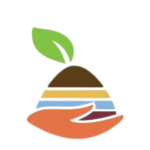
Division of Soil Science
Soil Science division deals with importance of soil and water testing, issue of soil health cards, soil suitability for agriculture, horticulture and soil fertility management strategies to the farming community.
The main objective of this Division is to carry out research on the improvement and maintenance of soil fertility for sustained optimum agricultural production; nutrient requirement and management of different horticultural crops and to develop suitable INM packages for enhancing productivity; nutrient management through balanced nutrition and increasing nutrient use efficiency; utilization of organic residues (agriculture wastes) as a manure and production of biogas as fuel; soil test crop response correlation studies; utilization of microbes for improvement of crop production and residues management; training and extension of services for students and farming community; advice to the farmers on soil test-based fertilizer recommendations.
Activities
1. Need based training programmes conducted on different field crops for Practicing Farmers, Farm Women and Rural Youth
- Importance of Soil & Water Testing.
- Soil Health Management.
- Integrated Nutrient Management practice
- Nutrient management through balanced nutrition and increasing nutrient use efficiency Fertigation; importance and their advantages.
- Increase of fertilizer use efficiency through foliar application.
- Role of bio fertilizer & organic manures in soil fertility improvement.
- Soil constraints and their management practices.
- Organic farming and composting technologies.
- Enriched compost preparation technologies.
- Soil fertility management under Rainfed condition.
- Utilization of microbes for improvement of crop production and residues management.
- Drought management practices.
2. Training programmes of innovative technologies conducted to Extension Functionaries for dissemination of technologies among the farmers
- Soil fertility and nutrient management strategies.
- Balanced fertilization with INM practice.
- Composting technologies.
3. Interventions Proposed based on the Prioritized Problems (OFT & FLD)
| S.No. | Descriptions | Area (ha) | No. of Demo |
|---|---|---|---|
| Name of the OFT Programme (2019-2020) | |||
| 1 | Assessing the performance of Arka microbial Consortium for nursery raising in Tomato | 2 | 5 |
| 2 | Assessment of organic nutrient management in Rice Cultivation (CO 51) | 2 | 5 |
| Name of the FLD programme (2019-2020) | |||
| 1 | Demonstration of foliar nutrition of mango special for enhancement of yield in Mango | 4 | 10 |
| 2 | Demonstration on Pusa Hydrogel for Soil Moisture Conservation in rainfed Cotton | 4 | 10 |
| 3 | Demonstration foliar nutrition of IIHR Vegetable special for enhancement of yield in Chilli | 4 | 10 |
| 4 | Demonstration on INM practices by foliar nutrition for enhancement of yield in Tomato | 4 | 10 |
4. Special Activities
Under revolving fund activity biofertilizers, crop boosters, Banana special and micro nutrient mixtures distributed to needed farmers.
5. Soil & Water Testing Laboratory
Soil & water testing laboratory is in operation since August 2006 at Krishi Vigyan Kendra, Theni. Soil & water health cards issued along with recommendation to farmers. The Parameters being analyzed is presented below.
| S.No. | Parameters | Price (Rs.) |
|---|---|---|
| Soil Sample | ||
| 1 | pH and EC | 50 |
| 2 | Macro nutrients (Nitrogen, Phosphorus, Potassium) | 100 |
| 3 | Macro (N,P and K) and Micro nutrients (Fe, Zn, Bo, Mn and Cu) | 150 |
| Water sample | ||
| 1 | pH and EC | 50 |
| 2 | Complete analysis | 150 |
